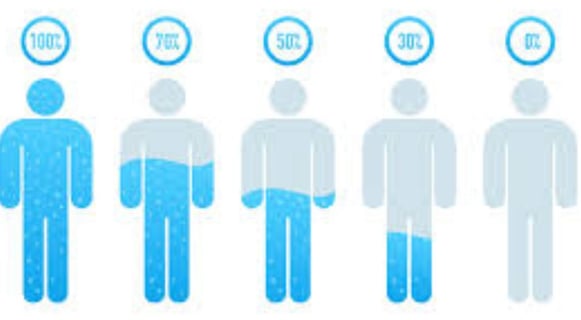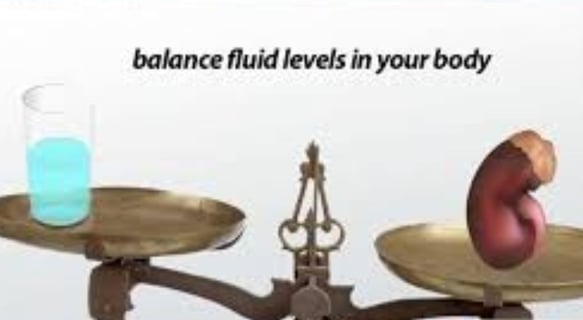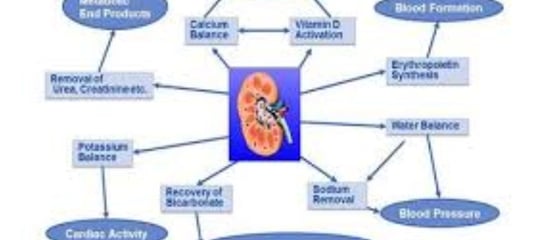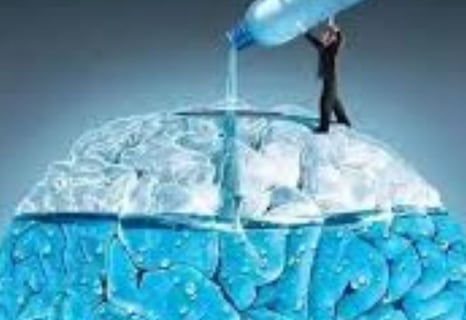
Health is a crown on the heads of the healthy that only the sick can see.
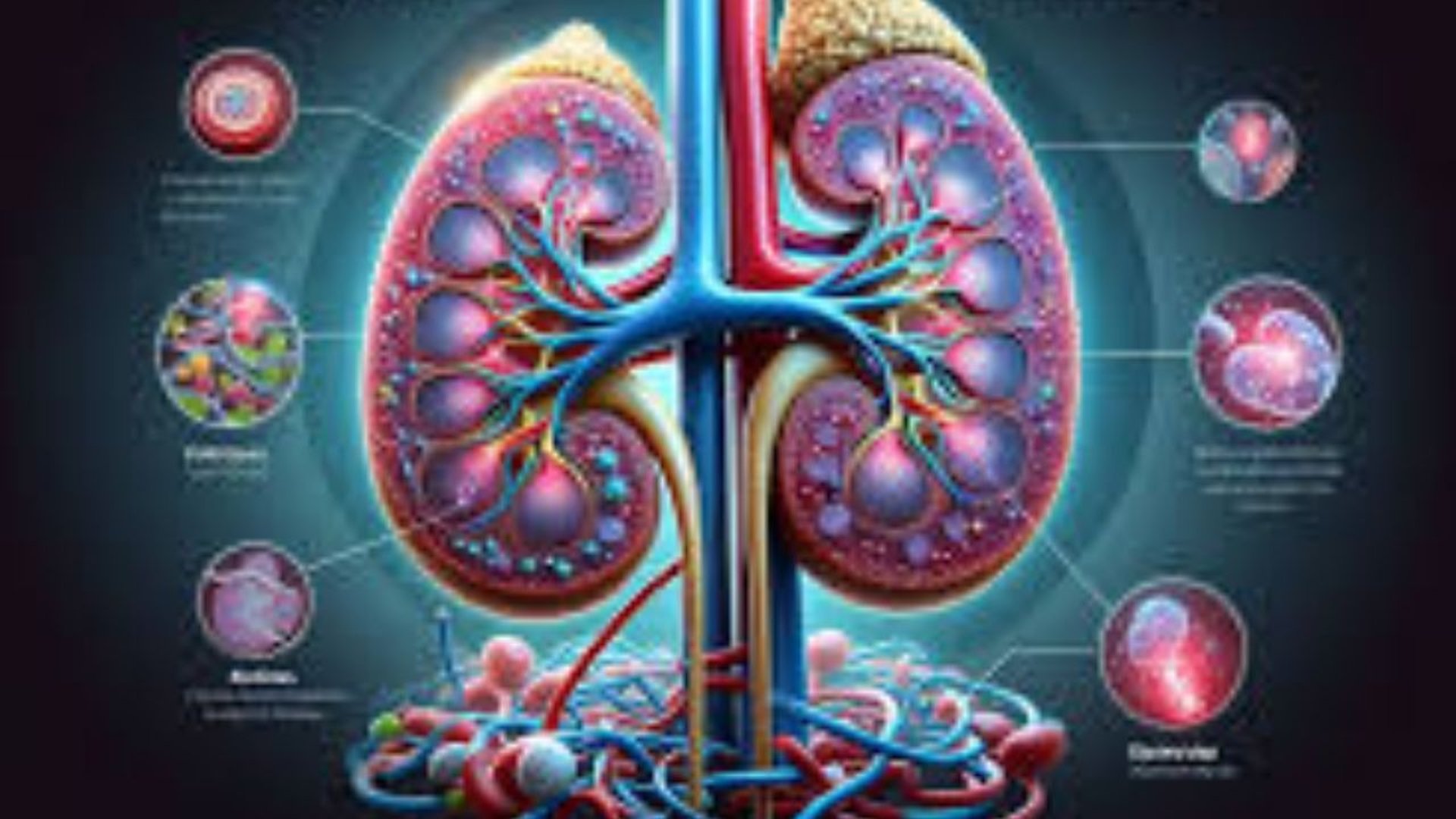
🥤🔬 Fluids & Fasting : The Science of Hydration and Kidney Function
💧🩺 Discover the vital link between fluids, kidney health, hydration, and fasting. Learn how proper hydration supports kidney function, the risks of over- or under-drinking water, and how fasting impacts renal wellness—especially for those with kidney conditions. 🌿🕌
KIDNY DISEASES
Dr Hassan Alwarraqi
6/29/2025


🥤🔬 Fluids & Fasting : The Science of Hydration and Kidney Function
💧🩺 Discover the vital link between fluids, kidney health, hydration, and fasting. Learn how proper hydration supports kidney function, the risks of over- or under-drinking water, and how fasting impacts renal wellness—especially for those with kidney conditions. 🌿🕌
proper hydration is crucial for kidney health, supporting waste removal and preventing kidney stones.
It seems likely that fasting can be safe for healthy individuals but may pose risks for those with kidney disease, especially chronic kidney disease (CKD).
The evidence leans toward consulting healthcare providers before fasting, particularly for kidney patients, to manage hydration and avoid complications.
Hydration and Kidney Health
Hydration is essential for maintaining kidney function, as it helps the kidneys filter waste and regulate bodily fluids. Aim for enough water to keep urine light yellow, with general guidelines suggesting around 3.7 liters daily for men and 2.7 liters for women, though this varies based on individual needs like age and activity level.
Dehydration can lead to kidney stones and infections, so staying hydrated is key, especially after exercise or in hot weather.
Fasting and Kidney Disease
For those with kidney disease, fasting, such as during Ramadan, can be risky due to potential dehydration and electrolyte imbalances.
It’s important for individuals with CKD, especially in advanced stages, to consult their doctor before fasting.
Some may need to adjust fluid intake and monitor their health closely, while others, like those on dialysis, might need to avoid fasting altogether to prevent worsening kidney function.
Practical Tips
To support kidney health, drink adequate water, reduce sodium and certain minerals in your diet, and avoid processed foods.
Regular exercise and medical check-ups can also help, particularly for those with conditions like diabetes or high blood pressure.
If considering fasting, always seek personalized advice from a healthcare professional to ensure safety.
Comprehensive Analysis of Kidney Health, Hydration, and Fasting
This note provides a detailed exploration of the relationship between hydration, kidney health, and fasting, drawing from authoritative sources to ensure a thorough understanding.
The focus is on providing practical insights for both healthy individuals and those with kidney conditions, emphasizing the importance of personalized medical advice.
Importance of Hydration for Kidney Health
Hydration is fundamental for maintaining kidney function, as the kidneys act as natural filters, removing waste, balancing minerals, and regulating blood pressure.
The National Kidney Foundation explains that healthy hydration means having the right amount of water in the body, with dehydration impairing normal bodily functions and potentially leading to kidney damage.
Severe dehydration can exacerbate kidney issues, making it essential to drink enough, especially after intense exercise or in warm, humid conditions.
that more than half of the body is made of water, highlighting its critical role.
Research suggests that adequate water intake helps prevent kidney stones and urinary tract infections (UTIs) by diluting urine and reducing the concentration of minerals and salts.
dehydration can lead to reduced kidney function, electrolyte imbalances, and increased risk of kidney stone formation, particularly during fasting when fluid intake is limited.
Recommended Water Intake and Individual Variation
There is no universal rule for water intake, as needs vary based on factors like age, climate, exercise intensity, and health conditions.
The National Kidney Foundation debunks the "8 glasses a day" myth, stating it is a general recommendation, not a one-size-fits-all standard.
Instead, daily water needs should be tailored to the individual, with guidelines suggesting around 3.7 liters (15.5 cups) for men and 2.7 liters (11.5 cups) for women,
including fluids from drinks and foods, as per the recommendations from the National Academies of Sciences, Engineering, and Medicine.
Factors influencing hydration needs include physical activity, environmental conditions, and health status.
For example, pregnant or breastfeeding women, athletes, or those in hot climates may require more fluids.
Signs of dehydration, such as thirst, fatigue, dizziness, and dark urine, indicate the need for increased water intake, while light yellow or clear urine suggests adequate hydration.
Factor
Impact on Hydration Needs
Age
Older adults may need less, but risk dehydration
Climate
Hot or humid conditions increase fluid needs
Exercise Intensity
Higher activity levels require more water
Health Conditions
Kidney disease may require fluid restrictions
Risks of Overhydration
While hydration is crucial, overhydration can pose risks, particularly for vulnerable groups. The Healthline article .
For kidney patients, overhydration can lead to fluid overload, causing swelling, high blood pressure, and heart problems, as the kidneys may struggle to remove excess water.
The PMC article highlights that patients with CKD need careful monitoring to avoid such complications, particularly during fasting periods.
Fasting and Its Impact on Kidney Health
Fasting, especially during religious observances like Ramadan, can be safe for healthy individuals if managed carefully, but it poses significant challenges for those with kidney disease.
for healthy people not on medications affecting hydration, fasting should not adversely affect kidneys, provided they are aware of their body's responses.
However, for those with underlying conditions, fasting for up to 20 hours in summer months can be risky, potentially leading to dehydration and electrolyte imbalances.
For patients with chronic kidney disease (CKD), the Clinical Kidney Journal article reviews current literature and emphasizes that fasting can worsen renal function and cause electrolyte imbalances, particularly for those on hemodialysis or peritoneal dialysis.
The article recommends a thorough risk assessment, ideally within a month before Ramadan, to determine if fasting is safe and to plan for medication adjustments and regular monitoring.
Specific risks for kidney patients during fasting include:
Reduced kidney function due to dehydration,
Electrolyte imbalances, which can cause weakness, dizziness, or irregular heartbeats.
Increased risk of kidney stones due to concentrated urine.
Potential worsening of existing kidney disease, especially in advanced stages.
CKD Stage
Fasting Recommendation
Early Stages (1-2)
Possible with medical supervision
Advanced Stages (3-5)
Generally not recommended, high risk
On Dialysis
May fast on non-dialysis days, with caution
Kidney Transplant
Not recommended, due to medication needs
The Healthline article advises caution for intermittent fasting, suggesting that kidney patients should consult nutrition experts to assess suitability,
given the potential for dehydration and strain on kidney function.
Practical Tips for Kidney Health During Fasting
For kidney patients considering fasting, preparation is key.
The Kidney Research UK article suggests getting a free health MOT at mosques, checking for diabetes or high blood pressure, and consulting doctors if on medications that affect hydration.
specific tips, such as:
Ensuring adequate hydration during non-fasting hours, limiting intake to about one liter daily post-iftar to avoid fluid overload.
Following a kidney-friendly diet low in sodium, phosphorus, and potassium, and avoiding processed foods and sugary drinks.
Monitoring for signs of dehydration, such as dark urine, fatigue, or dizziness, and breaking the fast if symptoms appear.
For healthy individuals, maintaining hydration during non-fasting periods and eating balanced meals can help protect kidney health.
Regular exercise, such as walking or swimming, and maintaining a healthy weight also support kidney function, as noted in the general tips from the National Kidney Foundation.
Dietary Considerations and Suitable Drinks
In addition to water, certain drinks can support kidney health.
recommends unsweetened plant-based milks, like almond or coconut milk, which have lower potassium and phosphorus levels, making them suitable for kidney patients.
Unsweetened fruit juices and low-sodium broths can also contribute to hydration. However, sugary drinks, sodas, and energy drinks should be avoided due to their high sugar and calorie content, which can strain the kidneys.
Foods high in water content, such as watermelon and spinach, can also aid hydration.
Drink/Food
Benefit for Kidneys
Notes
Water (Plain)
Essential, no calories or additives
Best choice for hydration
Plant-Based Milk
Lower potassium, phosphorus
Choose unsweetened varieties
Unsweetened Juices
Adds to fluid intake
Avoid added sugars
Water-Rich Foods
Natural hydration
Examples: watermelon, cucumber
Monitoring and Medical Consultation
Regular medical check-ups are vital for kidney health, especially for those with conditions like diabetes or hypertension, which are common causes of kidney disease.
annual diabetes checks and blood pressure monitoring, particularly for those with a family history.
For kidney patients, consulting healthcare teams before fasting is crucial to adjust medications and plan for monitoring renal function and electrolytes
that complete water fasting can lead to hyperuricemia and a temporary decrease in renal function, though it returns to baseline after a regeneration diet, suggesting that short-term fasting may have mixed effects on kidney health.
Frequently Asked Questions about Kidney Health, Hydration, and Water
What is the essential role of water in the body and how does it affect kidney health?
Water is essential for life and makes up approximately 50% to 70% of body weight. Water plays a vital role in various bodily functions, including:
Waste elimination: Water helps the kidneys filter toxins and waste from the body and expel them through urine.
Maintaining fluid and salt balance: It helps maintain balanced levels of minerals and electrolytes such as sodium, potassium, and calcium.
Regulating blood pressure: It helps maintain healthy blood pressure.
Preventing kidney stones and infections: It reduces the risk of kidney stones and urinary tract infections by diluting the concentration of salts and minerals in urine.
Transporting nutrients: It is a component of blood that carries nutrients and various components throughout the body.
Without adequate fluid intake, the kidneys struggle to perform these vital functions, which can lead to dehydration and long-term kidney damage.
What is the recommended daily amount of water, and is it the same for everyone?
There is no one-size-fits-all rule for how much water to drink daily, as individual needs depend on several factors such as age, body size, climate, level of physical activity, pregnancy or breastfeeding, and the presence of certain health conditions.
average of about 3.7 liters (about 15.5 cups) of fluids per day for men and 2.7 liters (about 11.5 cups) per day for women.
These recommendations include all fluids from water and other beverages, as well as water found in foods (which makes up about 20% of total fluids).
Thirst and urine color are good indicators: dark yellow urine indicates dehydration, while light yellow or colorless urine indicates adequate hydration.
Water intake should be adjusted based on personal circumstances.
Can drinking too much water be harmful?
Yes, in some rare cases, drinking excessive amounts of water can be dangerous, especially in healthy adults who consume very large amounts in short periods.
This condition is known as "water intoxication" or "hyponatremia," where sodium levels in the body drop significantly.
This can lead to brain swelling and can be life-threatening in severe cases, and can lead to death in severe cases if not treated quickly.
People most at risk of water intoxication include:
Kidney patients: especially those with advanced kidney disease, where the kidneys are unable to effectively remove excess water.
Athletes: especially marathon runners, who drink large amounts to replace lost fluids, increasing the risk of low sodium levels due to excessive sweating.
People with schizophrenia: They may experience psychogenic excessive thirst.
In these cases, fluid restriction may be necessary.
How can dehydration (lack of water intake) affect kidney health?
Dehydration is a major risk factor for kidney stone formation and can lead to serious kidney problems.
When the body becomes dehydrated:
Urine concentration: Urine becomes more concentrated, increasing the concentration of minerals and salts such as calcium, oxalate, and uric acid, which can crystallize and combine to form painful kidney stones.
Reduced blood flow: Blood flow to the kidneys decreases, affecting their ability to function properly.
Acid and harmful substance buildup: Acids and harmful substances build up in the body, which can block kidney ducts and cause kidney stones or urinary tract infections.
Prolonged or repeated dehydration can lead to acute kidney failure.
Symptoms of dehydration include dark urine, dry mouth, fatigue, dizziness, and heart palpitations.
Are there certain health conditions that require adjusting water intake?
Yes, in some health conditions, water intake should be adjusted:
Chronic kidney disease patients: They should restrict their fluid intake because the kidneys may be unable to eliminate excess water, leading to water and salt retention, swelling, fatigue, high blood pressure, heart problems, and fluid accumulation in the lungs.
They should only consume the amount recommended by their doctor.
Patients with pulmonary edema caused by heart disease may need fluid restrictions to prevent worsening swelling and fatigue.
Urinary tract infections: In these cases, drinking water is essential to help flush out germs through urine.
The need to travel and the inability to go to the bathroom: Water intake can be reduced to avoid urinary retention, which can cause cystitis.
It is important to consult a doctor to determine the appropriate hydration plan for each health condition.
What drinks other than water contribute to hydration and are beneficial for the kidneys?
In addition to water, there are several drinks that contribute to hydration and are kidney-friendly for most people, taking into account individual health conditions:
Plant-based milks: Many plant-based milks (such as unsweetened almond or coconut milk) contain less potassium and phosphorus than dairy milk, making them a good choice for kidney health.
Read food labels to choose unsweetened varieties without added phosphorus.
Unsweetened fruit juices: Contribute to total fluid intake.
Cow's milk (dairy): A good source of calcium and protein.
However, kidney patients may need to limit their intake due to its phosphorus and potassium content.
Low-sodium broths.
Tea and coffee: Can contribute to daily water intake, but beverages containing caffeine and added sugar should be moderated.
Foods with a high water content: such as watermelon, spinach, and other vegetables and fruits.
Avoid sugary drinks, soft drinks, energy drinks, or sweetened sports drinks, as they contain
It contains large amounts of added sugar and unnecessary calories.
What is the difference between distilled water and regular water, and which is better to drink?
Regular water (tap water or bottled water):
Contains natural minerals and salts.
It may contain some impurities or contaminants in varying proportions depending on its source and processing.
It is considered safe to drink in most cases, and its quality depends on its source and processing.
It is readily available, cheap, and easy to obtain.
Distilled water:
Water obtained by distillation and condensation, where water is heated to boiling point and converted to steam, which is then condensed back into a liquid.
It is completely free of impurities, minerals, salts, and contaminants, making it the purest form of water.
It is tasteless and odorless.
It is primarily used in industry, medicine, and chemical experiments, and in some devices such as lead-acid batteries, automotive cooling systems, humidifiers, and the canned food industry to ensure product purity.
Which is better to drink?
For daily use, plain water (which has been verified to be pure and quality-tested) is the preferred and safest choice for most people, as it provides the essential minerals the body needs.
While distilled water is extremely pure, it lacks the minerals naturally present in plain water, which contribute to a healthy body.
Consuming distilled water regularly may lead to deficiencies in some essential minerals.
What foods and drinks should kidney patients avoid or limit?
Kidney patients need to carefully monitor their diet to avoid stressing their kidneys.
Foods and drinks to avoid or limit include:
Sodium-rich foods: such as chips, fried foods, crackers, salted nuts, pickles, and sausages. Excess sodium raises blood pressure, increases stress on the kidneys, and leads to water retention and swelling.
Phosphorus-rich foods: such as bananas, milk, meat, and guava.
Weak kidneys cannot easily process phosphorus, and its accumulation leads to calcium being drawn from the bones, causing bone weakness and increasing the risk of fractures.
Potassium-rich foods: such as coconut and its water, potatoes, sweet potatoes, spinach, coriander leaves, chocolate, and instant coffee.
Excess potassium can accumulate and lead to serious heart problems.
Excess protein: Protein-rich foods contain purines that increase uric acid production, which can lead to uric acid stones and kidney damage.
Protein levels should be monitored and a balanced diet should be followed as directed by a doctor or nutritionist.
Sugary and processed drinks: These increase the burden on the kidneys and the body in general.
Star fruit: These should be completely avoided by kidney patients because they contain toxins that diseased kidneys cannot filter.
Kidney patients should consult a nutritionist to develop a nutritional plan appropriate for their condition.
What is medical fasting and what are its potential benefits and risks?
Medical fasting, or water-based fasting, is a procedure performed under the supervision of a specialist, where the patient abstains from food and drink except for water.
The duration of medical fasting typically ranges from 24 hours to three days.
If the duration exceeds 2-3 days, fasting should be performed in a medical facility under the supervision of a physician.
The purported benefits of medical fasting include weight loss, eliminating excess cholesterol and triglycerides, eliminating uric acid and environmental toxins accumulated in the body, treating inflammation (such as arthritis, colitis, and asthma), helping resolve insulin resistance, and normalizing blood pressure.
However, there are risks. Fasting for more than one to three days requires specialized medical advice, as an individual's age and health condition play a role in eligibility.
Long-term water fasting may lead to a decrease in the glomerular filtration rate (a measure of kidney efficiency) and an increase in blood pressure, making it undesirable and prohibited for kidney patients.
What is the effect of fasting on kidney patients? Is it permissible for them to fast?
The effects of fasting on kidney patients are complex and vary depending on the type and severity of the disease.
There is no definitive scientific consensus on the effect of consecutive fasting for a full month on kidney patients.
Some studies indicate no negative or positive effects, while other studies show that abstaining from food and drink, especially water, for long periods can negatively impact disease progression.
In general, patients with acute kidney failure are prohibited from fasting until their condition improves.
CKD patients of stage 3 and above are advised not to fast because the kidneys at this stage are unable to retain body fluids, which can lead to severe dysfunction and significant damage.
Hemodialysis patients can fast on days when they are not undergoing dialysis, while being careful about the amount of water they consume after breaking their fast (not exceeding one liter per day).
Peritonial dialysis patients cannot fast because of the nutrients in their dialysis fluids.
Kidney transplant patients are advised not to fast because the transplanted kidneys are affected by fluid deprivation and the need to take their medications regularly.
All kidney patients should consult their physician before deciding to fast.
What are the general tips for maintaining kidney health?
To maintain healthy and strong kidneys,
it is recommended to follow a set of healthy habits:
Consistently drink enough water: This is essential for proper kidney function and the elimination of toxins.
Avoid excess salt: Excessive sodium increases the burden on the kidneys.
Monitor dosages: When using herbs or any supplements, avoid side effects.
Avoid preservatives: Processed foods contain toxins that strain the kidneys.
Seek regular medical advice: Especially when using any herbal remedies in conjunction with medical treatments.
Stay active and move:
Exercise regularly.
Maintain a healthy lifestyle.
Normal blood sugar levels.
Regularly measure and control blood pressure.
Eat a healthy diet and maintain a stable weight.
Do not smoke.
Do not take over-the-counter medications, especially painkillers and antibiotics.
It is essential to check your kidney function if you suffer from chronic conditions such as diabetes or high blood pressure.
Does fasting affect blood creatinine levels?
Studies have been conducted on the effect of fasting on creatinine levels (an indicator of kidney function).
Some studies have found a slight increase in creatinine levels when using a specific laboratory analysis method, while levels remained unchanged when using other methods.
Overall, more studies are needed to determine the exact relationship between fasting, creatinine levels, and their effects on kidney function.
Therefore, kidney patients are always advised to consult with their physician before and during Ramadan to monitor their vital signs, receive dietary advice, and schedule medication intake to ensure their safety.
Conclusion
Hydration is a cornerstone of kidney health, supporting the kidneys' vital functions and preventing diseases like kidney stones and UTIs.
For individuals with kidney disease, fasting requires careful management and medical supervision to avoid dehydration and complications, particularly in advanced CKD stages.
Personalized advice, tailored hydration strategies, and a balanced diet are essential for maintaining kidney health, especially during fasting periods.
This comprehensive approach ensures that both healthy individuals and those with kidney conditions can manage their health effectively.
keywords
Hydration is vital for maintaining kidney health, supporting the body's natural filtration process, and preventing conditions like kidney stones and urinary tract infections, with optimal intake varying by individual factors such as age, activity level, and climate—typically around 3.7 liters for men and 2.7 liters for women daily, including fluids from food and drinks.
Fasting poses unique challenges, particularly for those with chronic kidney disease, where dehydration and electrolyte imbalances can worsen renal function, necessitating medical supervision and tailored fluid management, especially during extended periods like Ramadan.
Overhydration risks, such as water intoxication and hyponatremia, highlight the need for balance, especially for vulnerable groups like kidney patients and athletes, while a kidney-friendly diet—low in sodium, phosphorus, and potassium, and rich in water-based foods like watermelon—along with regular exercise and medical check-ups, supports long-term kidney health.
Keywords: hydration, kidney health, fasting, chronic kidney disease, dehydration, electrolyte balance, water intake, kidney stones, diet, medical supervision.


